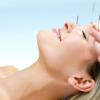Acupuncture Treatment for Disc Herniation
Acupuncture can be an effective complementary therapy for managing symptoms associated with disc herniation, a condition where the soft inner portion of a spinal disc protrudes through a tear in the outer layer, potentially pressing on nerve roots and causing pain, numbness, or weakness. Here’s how acupuncture might help:
- Pain Relief: Acupuncture is widely recognized for its pain-relieving effects. By stimulating specific points, it can trigger the release of endorphins, the body's natural painkillers, and modulate the central nervous system's pain perception, offering relief from the acute and chronic pain associated with disc herniation.
- Reducing Inflammation: The protrusion of disc material can lead to inflammation around the affected nerve roots. Acupuncture may help reduce inflammation by influencing the release of anti-inflammatory chemicals in the body, which can alleviate symptoms and promote healing.
- Improving Circulation: Enhanced blood flow to the affected area can support the healing process by delivering oxygen and nutrients while removing waste products. Acupuncture stimulates circulation, which can aid in the healing of tissues irritated or damaged by disc herniation.
- Muscle Relaxation: Muscle spasms often occur in response to disc herniation as the body attempts to stabilize the affected area. Acupuncture can help relax tense muscles and relieve spasms, reducing pain and improving mobility.
- Nerve Function Support: By reducing pressure on the affected nerve roots through inflammation reduction and muscle relaxation, acupuncture may help improve nerve function and alleviate symptoms such as numbness, tingling, or weakness.
- Stress Reduction: Dealing with the pain and limitations of disc herniation can lead to increased stress, which can exacerbate symptoms. Acupuncture promotes relaxation and reduces stress, contributing to a more positive overall health outlook and potentially enhancing the body's natural healing capabilities.
- Holistic Healing: Acupuncture treats the individual as a whole, addressing not just the symptoms but also the underlying imbalances that may contribute to the development of disc herniation. This holistic approach aims to improve overall well-being and prevent future occurrences.




